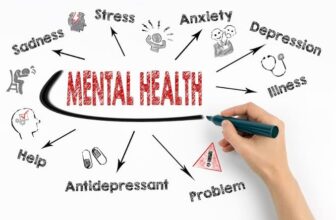
Emotions play a significant role in our daily lives, influencing our thoughts, behaviors, and overall well-being. While positive emotions can contribute to a healthier lifestyle, negative emotions such as anger can have detrimental effects on our physical and mental health. In this article, we will explore the various ways in which anger and bad emotions can impact your health, shedding light on the importance of managing these emotions for a better and more balanced life.
Anger, a powerful and natural emotion, is an integral part of the human experience. It can range from mild irritation to intense rage, and its impact extends beyond immediate emotional reactions. While anger itself is not inherently harmful, the way individuals handle and express it can significantly influence both mental and physical well-being. In this detailed exploration, we will delve into the intricate effects of anger on health, unraveling the complex interplay between this emotion and various aspects of our physiological and psychological states.
The physiological response to anger is orchestrated by the body’s stress system. When faced with a perceived threat or injustice, the brain triggers the release of stress hormones such as cortisol and adrenaline. These chemicals prepare the body for the “fight or flight” response, mobilizing energy reserves and sharpening focus. In the short term, this heightened state of arousal can be adaptive, aiding in addressing challenges or dangers. However, when anger becomes chronic or is not effectively managed, it can lead to a cascade of detrimental effects on physical health.
One of the primary physiological consequences of anger is its impact on the cardiovascular system. The surge of stress hormones during angry episodes prompts an increase in heart rate and blood pressure. Over time, persistent elevation of these vital signs can contribute to the development of cardiovascular issues, including hypertension and an increased risk of heart disease. The heart, subjected to the strain of prolonged heightened activity, may face challenges in maintaining optimal function, underscoring the importance of understanding and managing anger for cardiovascular health.
Furthermore, the immune system, a vital component of the body’s defense mechanism, is not immune to the influence of anger. Chronic anger has been associated with a weakened immune response, making individuals more susceptible to infections and illnesses. The stress-induced suppression of immune function compromises the body’s ability to fend off pathogens, potentially leading to a higher incidence of health issues.
The digestive system, intricately linked to emotional states, also bears the brunt of unchecked anger. Stress hormones released during angry episodes can disrupt the normal functioning of the digestive tract, contributing to problems such as indigestion and irritable bowel syndrome (IBS). The intricate balance of the digestive processes is perturbed, manifesting in physical discomfort and affecting overall digestive health.
Beyond the realm of physiology, anger exerts profound effects on mental health. The emotional fallout of anger, if not addressed, can escalate into persistent feelings of frustration and helplessness, laying the groundwork for anxiety and depression. Negative thought patterns associated with chronic anger can create a cycle of emotional distress, impairing mental well-being over time.
Cognitively, the impact of anger extends to impairments in various aspects of brain function. Chronic anger has been linked to deficits in memory, decision-making, and problem-solving abilities. The constant activation of the stress response associated with anger may contribute to long-term consequences on brain health, potentially increasing the risk of cognitive decline.
In the realm of behavior, anger can strain relationships with family, friends, and colleagues. Uncontrolled outbursts and expressions of anger can lead to misunderstandings, conflicts, and a breakdown of communication, negatively impacting an individual’s social support system. Additionally, individuals grappling with chronic anger may turn to unhealthy coping mechanisms, such as substance abuse— Individuals struggling with chronic anger may turn to unhealthy coping mechanisms, such as substance abuse, to numb or escape their emotions. This not only exacerbates existing health issues but also introduces new risks and challenges.
As we navigate the intricate web of anger’s impact on health, it becomes evident that a comprehensive understanding of this emotion is essential. While anger itself is a natural response to certain stimuli, recognizing its potential consequences on both physical and mental well-being underscores the importance of cultivating healthy coping mechanisms. In the subsequent sections, we will explore strategies for effectively managing anger, promoting a more balanced and harmonious approach to emotional well-being.
Coping Strategies for Managing Anger
Recognizing the potential harm that chronic anger can inflict on both physical and mental health, adopting effective coping strategies becomes crucial for fostering a healthier emotional state. Here are additional coping strategies that individuals can incorporate into their lives to manage and mitigate the impact of anger:
1. Time-Outs and Distraction Techniques:
When faced with a situation that triggers anger, taking a brief time-out can be invaluable. Stepping away from the source of frustration allows for a moment of reflection and helps prevent impulsive reactions. Engaging in distraction techniques, such as deep breathing, counting to ten, or focusing on a calming image, can redirect attention away from anger-inducing thoughts.
2. Journaling:
Keeping a journal to express and explore feelings of anger can be a therapeutic outlet. Writing down thoughts and emotions allows individuals to gain insight into the root causes of their anger and identify patterns. This reflective practice can contribute to a better understanding of triggers and aid in developing constructive responses.
3. Physical Activity and Exercise:
Regular physical activity is a powerful way to release pent-up energy and reduce stress, including anger. Engaging in activities such as walking, jogging, or participating in sports can promote the release of endorphins, the body’s natural mood enhancers, fostering a more positive emotional state.
4. Assertiveness Training:
Learning assertiveness skills can empower individuals to express their needs and concerns in a respectful and effective manner. Assertiveness training helps strike a balance between passive and aggressive communication, promoting healthy interactions and reducing the likelihood of conflicts that fuel anger.
5. Problem-Solving Strategies:
Taking a proactive approach to resolving issues that trigger anger can be instrumental. Instead of dwelling on the problem, individuals can focus on finding solutions. Breaking down larger issues into manageable steps and working towards resolutions can provide a sense of control and diminish feelings of frustration.
6. Seeking Social Support:
Sharing feelings of anger with trusted friends, family members, or support groups can provide a valuable outlet. Having a supportive network can offer empathy, understanding, and alternative perspectives, helping individuals navigate challenging situations more effectively.
7. Mindfulness Practices:
Mindfulness techniques, such as meditation and mindfulness-based stress reduction (MBSR), are effective tools for managing anger. These practices promote self-awareness, allowing individuals to observe their thoughts and emotions without judgment. Cultivating mindfulness can enhance emotional regulation and resilience.
8. Cognitive Restructuring:
Examining and challenging negative thought patterns associated with anger is a key component of cognitive restructuring. By identifying irrational or unhelpful beliefs and replacing them with more balanced and rational thoughts, individuals can change their perception of anger-inducing situations.
9. Professional Counseling:
Seeking the guidance of a mental health professional, such as a psychologist or counselor, can provide tailored strategies for managing anger. Therapists can assist individuals in exploring the root causes of their anger, developing coping skills, and fostering emotional resilience.
10. Anger Management Programs:
Participating in structured anger management programs can offer individuals a comprehensive approach to addressing and modifying anger-related behaviors. These programs often include education, group therapy, and skill-building exercises to enhance emotional control.
Conclusively, Incorporating a combination of these coping strategies into daily life can contribute to a more balanced and harmonious emotional state. The key is to find approaches that resonate with individual preferences and circumstances, allowing for a personalized and sustainable journey toward effective anger management.
Photo: Google.







